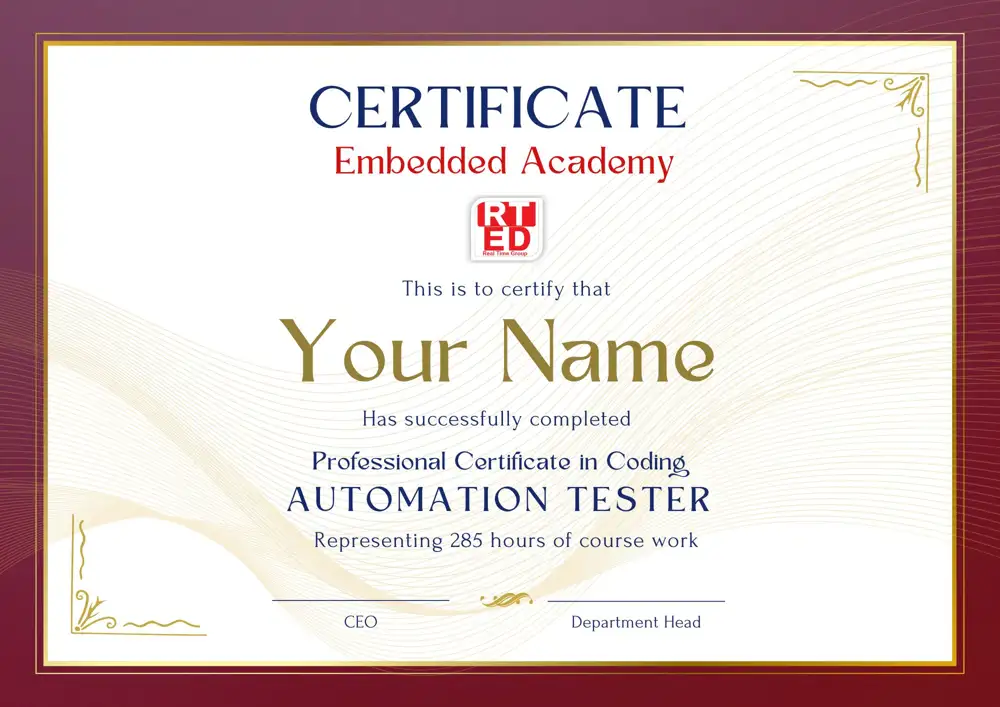
After successfully completing the automation training program, graduates will have the skills and expertise needed to pursue various roles in industries where automation plays a crucial role. They could explore opportunities in sectors such as software development, quality assurance, testing, DevOps, and IT operations. Companies ranging from tech startups to established enterprises often seek professionals with automation skills to enhance their operational efficiency, product quality, and overall development process. This training equips individuals to contribute to roles like Automation Engineer, Quality Assurance Analyst, Test Automation Developer, and DevOps Engineer, making them valuable assets in both established a variety of technology companies.




.webp)
.webp)
.webp)
.webp)











